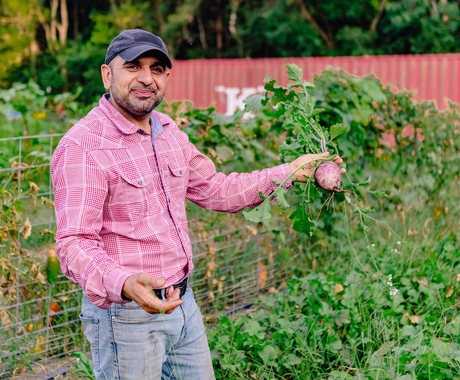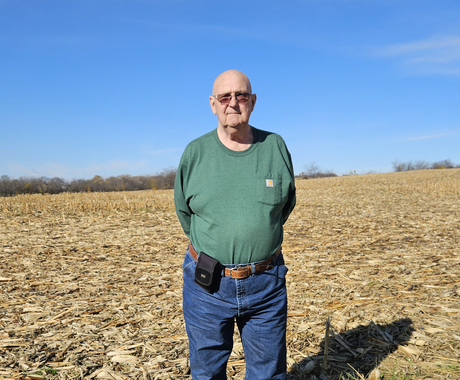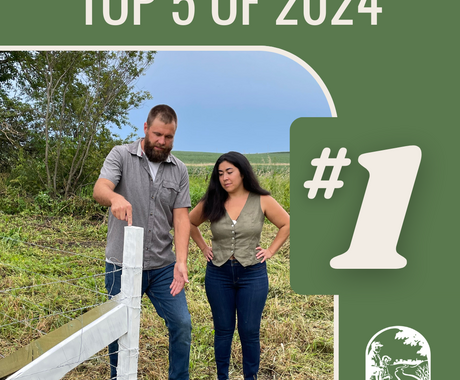For Kelly Alsup, there was no better way to start advocating for change than to become knowledgeable. That simple but effective idea led Kelly to begin her journey in farming more than two decades ago, and she has continued down that path since.
“In undergraduate school, I learned that farming had a big impact on the environment, which I care deeply about,” she said. “When I started working in the field, I realized that farming was a good fit for me vocationally in that I loved being physical and outside, constantly immersed in the natural world.”
Kelly has worked as a gardener and garden educator in California, Colorado, Nebraska, Oregon, and Vermont, and now lives in Omaha.
Since she has spent so much time in farm fields, Kelly feels bonded to the land. She has become familiar with conservation practices, and considers them a top priority.
“When I know that some aspect of land health isn't being cared for as well as it could, I feel remorse and therefore a natural motivation to do better,” Kelly said. “I want the landscapes I tend to match the vitality of wild landscapes as much as possible, and I want to align my efforts toward that vitality, which is ultimately a form of respect and also shows I am paying attention and willing to take action.”
Kelly’s passion for conservation inspired her to apply to the Center for Rural Affairs Beginning Farmer Conservation Fellowship Program, and she was chosen to participate.
The Center recently started the program for beginning farmers and ranchers who would like guidance in implementing conservation programs. Fellows will complete coursework in conservation programs and practices, climate change adaptation and impacts, racial equity, and leadership.
They will also design and implement a conservation project on their own farm or land and present their findings at the annual Nebraska Sustainable Agriculture Conference in February, when the program ends.
Kelly does not own land, and will not be farming in the coming season on the same land she tended during the past season, so her project will largely be research.
“A huge part of our conservation efforts for the past season came in the form of abundant flower planting, which attracted large numbers of beneficial insects and detracted some pests,” she said. “A portion of my research will dive more deeply into the benefits of herbs and flowers on farms.”
Kelly hopes the fellowship will provide her with more detailed information about the benefits of flowers and herbs on farms and in our daily lives.
“I’m excited about the conservation curriculum, as there are many other topics of interest to me, such as soil fertility, equity in farming, and mental health and career viability for farmers,” she said.
The fellowship, including the valuable teachings the program offers, is being presented at the perfect time for Kelly.
“I have been involved in organic farming throughout my years in agriculture, but I have also been exposed to some ecological compromises or shortcuts that farmers make to keep their business running, myself included,” she said. “Now, more than ever, I think we are seeing that the most deeply ecological practices are what will keep our soils, farms, and ecosystems alive in the long run.”
People can no longer afford to take shortcuts at the ecological level, Kelly said, especially considering the current condition of the climate.
“We will lose economic and general viability on each farm if we do not tend the landscape on the whole,” she added. “Furthermore, conservation practices on farms can actually help in the restoration of nearby landscapes and overall climate.”
Looking forward to the 2023 growing season, Kelly said she may focus on a personal garden instead of working on a bigger area.
“If I am not tending a large field, I hope it is because I am dedicating my vocational energy toward advocacy, which I now feel well-equipped to do, having 25 years of experience in the field. I don't want to expect others to grow all of my food. I have learned a lot about farming, plants, and food crops, so it is rewarding to get to use and share my knowledge, as well as continue learning.”
Click here to learn more about the Center’s Beginning Farmer Conservation Fellowship Program.
Photos submitted
Farm and Food







